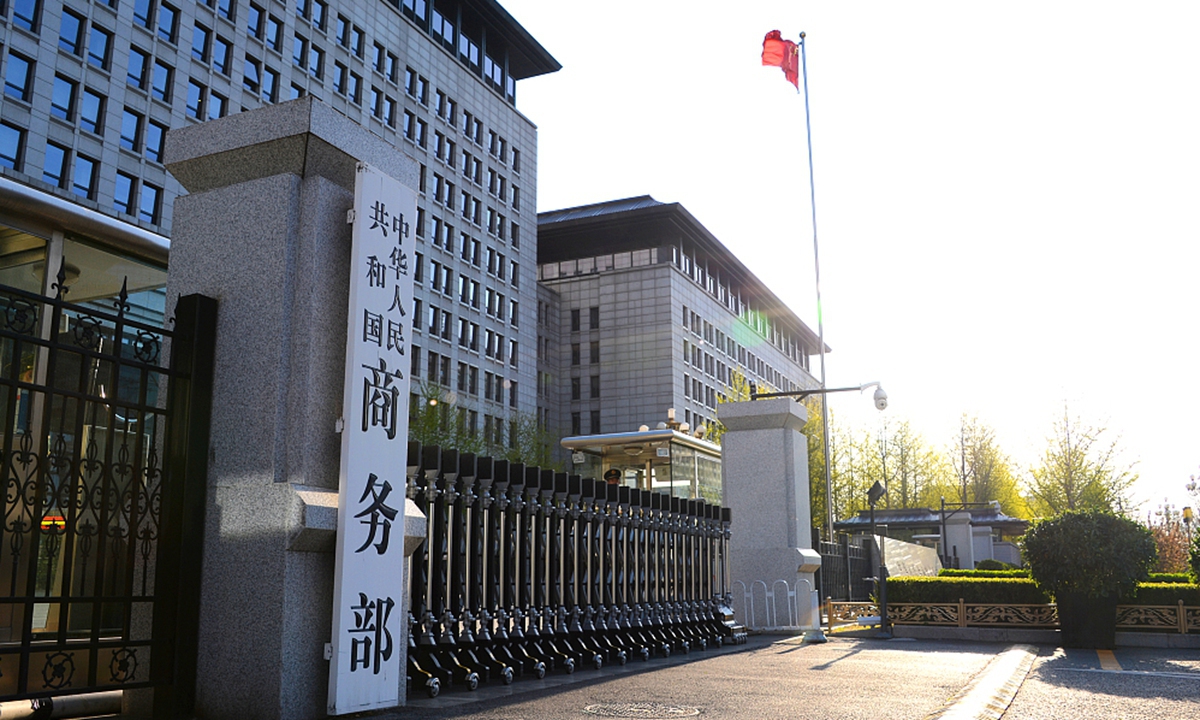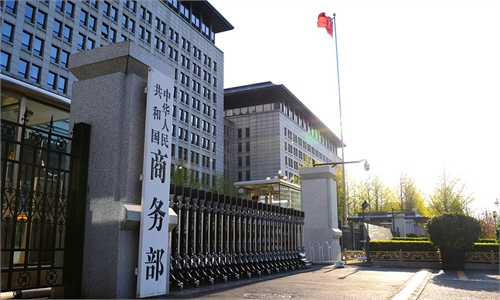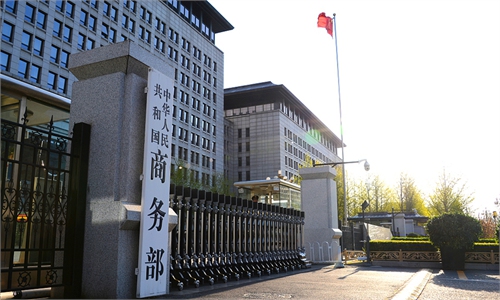Who is feeling uneasy about China's anti-dumping investigation?: Global Times editorial

The Ministry of Commerce Photo: VCG
China on Sunday started an anti-dumping investigation into polyformaldehyde copolymer imported from the EU, the US, China's Taiwan region, and Japan. This investigation is well-founded, reasonable and legal, yet some Western media outlets view it as China's "retaliation," claiming that it is suspected to be a "tit-for-tat action" against the recent US intensification of pressure on Chinese products such as electric vehicles. It seems that the latest trade protectionist measures deployed by the US against Chinese manufacturing have caused anxiety and unease among Americans before they could impact China.
The anti-dumping investigation is based on a formal application submitted to the Ministry of Commerce on April 22 by six major Chinese polyformaldehyde copolymer producers. This application predates the US announcement of additional tariffs on Chinese goods by three weeks. Therefore, labeling this anti-dumping investigation as "retaliation" is clearly unfounded. Moreover, China's investigation into polyformaldehyde copolymer anti-dumping actually began in 2016, and in 2017, anti-dumping duties were imposed on this product from South Korea, Thailand and Malaysia. This current investigation simply expands the scope to include four more regions.
So why has a regular and normal anti-dumping investigation led to such over-interpretation by Western media outlets? Before and after the US imposed additional tariffs on Chinese imports, some political figures and media outlets in Washington have been heavily focused on whether China would "retaliate." US Treasury Secretary Janet Yellen previously stated, "Hopefully we will not see a significant Chinese response - but that's always a possibility." The Associated Press also quoted US government officials as saying they expected China to "explore ways to respond to the new taxes on its products."
Washington is very worried about China taking countermeasures, which is why it is being so suspicious of China's anti-dumping investigations. In its editorial on May 14, The Wall Street Journal described the US government's imposition of tariffs on China's "new three" products as "the Sarajevo of the global green trade war," warning that this move is "certain to disrupt business supply chains and raise costs for US consumers and businesses," and will provoke Chinese retaliation. This sensitivity of the media to China's "countermeasures" suggests that they acknowledge their own government has made a "major mistake" in its trade decisions with China and believe that China will respond with similar "erroneous measures."
In fact, the anti-dumping investigation conducted by China's Ministry of Commerce not only follows established practices but also complies with the WTO Anti-Dumping Agreement, making it the "correct approach." The relevant information is transparent and openly available to stakeholders. The anti-dumping investigation is not targeted at any specific country or region, unlike the US that wields the stick of unilateralism, protectionism, and bullying against China, simply because it cannot tolerate China's manufacturing being stronger than its own.
What we need to be vigilant about is that some Western media and politicians are taking this opportunity to hype up the notion of "China's retaliation." They aim to smear China's legitimate anti-dumping investigation by equating it with their own "trade protectionist" measures. In other words, they seek to justify their politicized trade protection policies by questioning the legitimacy of China's trade actions. In essence, they are using the murky waters of the "trade war" to confuse right and wrong, obscuring the truth, and shirking responsibility for the serious consequences their unilateral trade war has had on the global economy. This behavior of blaming China is truly contemptible.
Since Washington announced additional tariffs on China, Western public opinion has been anxiously awaiting China's "retaliation." They have been speculating about what kinds of "retaliatory" actions are implied in the Chinese Foreign Ministry spokesperson's statement that "China will take all measures necessary to defend its rights and interests." However, what deserves more attention is the preceding sentence from the spokesperson: "We urge the US to earnestly observe WTO rules and immediately cancel the additional tariffs on China."
Although this anti-dumping investigation is not "retaliation," China does indeed have ample countermeasures at its disposal. China calls the shots on when this shoe will drop. Using trade protectionist measures to suppress China has not and will not hinder China's development and rejuvenation; instead, it will only motivate the Chinese people to work harder. We also advise some individuals in the US that, rather than worrying about whether China will "retaliate," it would be better to recognize their mistakes and change their trade protectionist practices. This is the right path to take.


